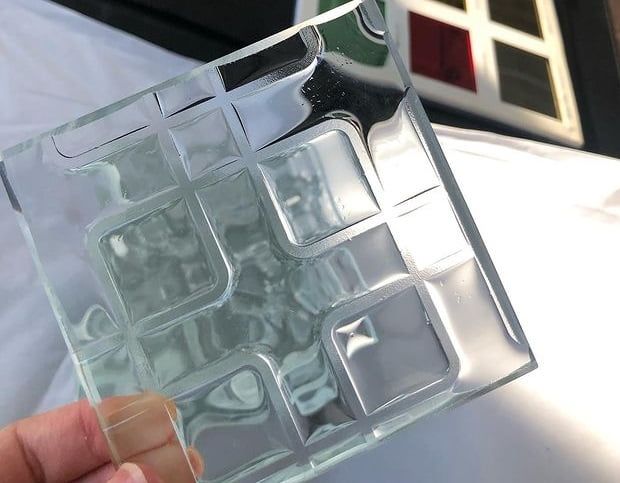Decorative Glass

Decorative glass refers to any type of glass that has been treated with a variety of techniques to create unique designs and patterns. This type of glass is perfect for adding style and character to any space.
History of Decorative Glass
Decorative glass has been used for centuries as a way to add beauty and elegance to a space. The earliest known use of decorative glass was in ancient Egyptian and Roman times, where it was used in the form of small, intricately-etched glass bottles.
Different Types of Decorative Glass?
Decorative glass is made by using a variety of techniques, including:
- Stained glass: Stained glass is created by adding pigments to molten glass and then shaping it into a desired design.
- Leaded glass: Leaded glass is created by joining pieces of glass together with lead came.
- Fused glass: Fused glass is created by heating pieces of glass together in a kiln, which causes them to melt and fuse together.
- Sandblasting: Sandblasting is a process of etching designs and patterns on the surface of the glass – this is the same process used to make frosted glass.
- Decorative film: Decorative film is applied to the surface of the glass, which can be printed with various designs and patterns.
What are the advantages of Decorative Glass?
Decorative glass has a number of advantages, including:
- Aesthetic: Decorative glass can be used to create an elegant, unique and beautiful design that can be used to enhance the aesthetic of a space.
- Privacy: Decorative glass can provide privacy while still allowing natural light to enter a space.
- Versatility: Decorative glass can be used in a wide range of residential and commercial applications, including windows, doors, partitions, skylights and more.
What are the disadvantages of Decorative Glass?
Decorative glass does have a few disadvantages, including:
- More expensive: Decorative glass is typically more expensive than regular glass.
- Fragility: Decorative glass is more fragile than regular glass, so it requires extra care in handling and installation.
- Limited designs: Some types of decorative glass such as Fused glass has limited design options compared to other decorative glass types.
What are the applications of Decorative Glass?
Decorative glass is suitable for a wide range of residential and commercial applications, including:
- Windows: Decorative glass can be used to create elegant, unique designs in windows. It is often used for window glass replacement to enhance the aesthetic of a space.
- Doors: Decorative glass is often used in door glass replacement to create beautiful, unique doors that can be used to enhance the aesthetic of a space.
- Partitions: Decorative glass can be used to create partitions in offices, restaurants, or other commercial spaces.
- Glass walls: Decorative glass can be used to create glass walls that can be used to enhance the aesthetic of a space.
- Kitchen splashbacks: Decorative glass can be used to create a sleek and modern look in a kitchen
In conclusion, decorative glass is a great choice for anyone looking to add style and character to their home or business. It may cost a bit more than regular glass, but the benefits of unique design, privacy and versatility make it worth the investment. As a glazier in Sydney, I highly recommend decorative glass for any residential or commercial project.

AUTHOR: Nhu Tran
Operations Manager & Glazier at Grand Glass Repairs - Door & Window Glass Replacement
Nhu Tran is a highly experienced glazier who currently works for Grand Glass Repairs in Sydney. With many years of experience in the field, Nhu has become an expert at he’s craft and can be counted on to get the job done right, no matter how challenging it may be. He takes great pride in her work and is always looking for new ways to improve her skills. When she’s not working, Nhu enjoys spending time with he’s family and friends.
